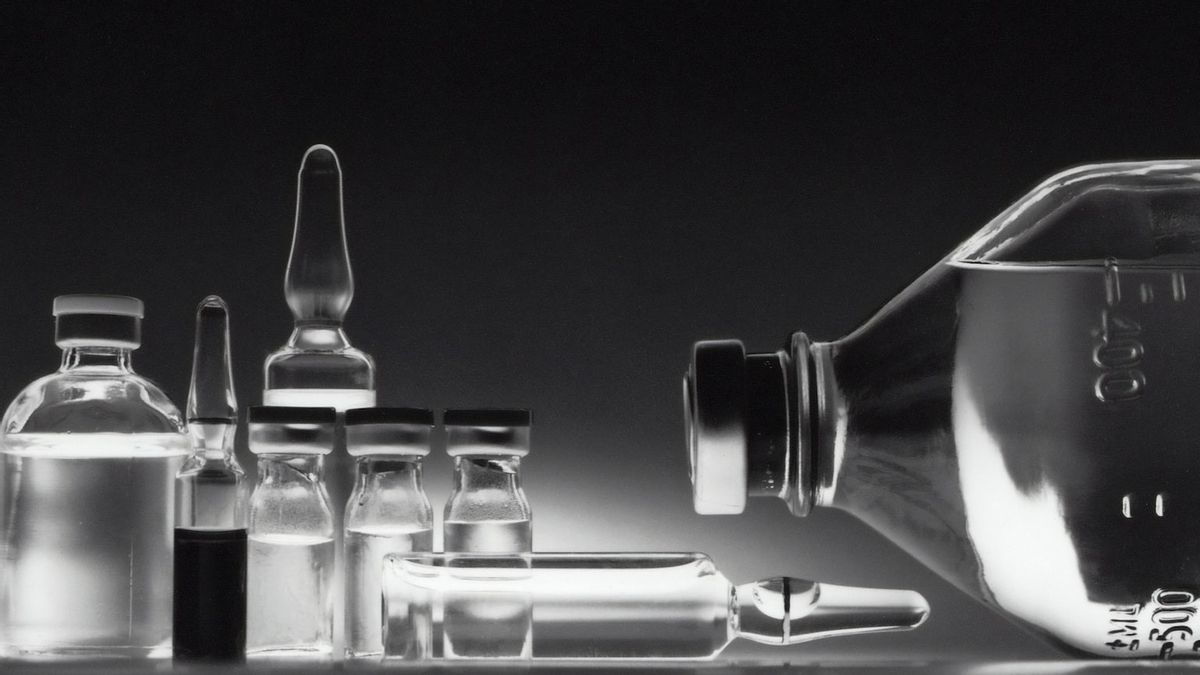The Criminal Investigation Unit of the National Police this afternoon will announce that the suspect in the case of acute kidney failure in children suspected of originating from drugs using chemical compound raw materials (EG and DEG) exceeds the safe threshold.
"Information from the Dirtipidter is expected to be doorstop this afternoon," said Head of the Public Information Bureau of the National Police's Public Relations Division, Brigadier General Pol. Ahmad Ramadhan, Thursday, November 17, as reported by Antara.
According to Ramadhan, information on the progress of the investigation into the acute kidney failure case will be conveyed by the Director of Certain Crimes (Dirtipidter) of the National Police Criminal Investigation Agency Brigadier General Pipit Rismanto.
"But the doorstop material has not been informed yet," he said.
It is estimated that the doorstop activity will develop the investigation into the acute kidney failure case at the Police Criminal Investigation Unit Building at around 16.00 WIB or more.
Previously, investigators from the Criminal Investigation Unit of the National Police had carried out a case title to determine potential suspects in cases of acute kidney failure which resulted in 199 children dying (period September 1-15 November 2022 according to data from the Ministry of Health).
The process of holding the case was carried out on Wednesday (16/11) at the Police Criminal Investigation Unit. However, investigators have not announced who the suspect is because they are waiting for instructions from the police leadership.
"The case has been completed on Wednesday and will be announced soon," said Pipit Rismanto, Wednesday (16/11).
In this case, investigators are investigating allegations that drugs using chemical compound raw materials (EG and DEG) exceed the safe threshold by PT. Afi Farma.
Because of PT. Afi Farma is suspected of not only obtaining raw materials from one company, but is suspected to have come from several companies. This is what investigators are currently investigating.
A total of 41 people have been examined, consisting of 31 witnesses and 10 expert witnesses.
Investigators ensure that all parties related to the findings of chemical compounds (EG and DEG) exceed the safe threshold are held accountable, be it the pharmaceutical industry, suppliers of medicinal raw materials, distributors, and supervisors.
In this investigation, the Indonesian Food and Drug Supervisory Agency together with the National Police's Criminal Investigation Agency revealed the findings of a kidney-depleting chemical compound, Etylene Glikol (EG)/Diethilen Glikol (DEG), in a drum with the identity of Propilen Glikol (PG) in a banana plantation in Depok, West Java, Wednesday (9/11).
BPOM takes samples of chemicals for laboratory testing, the results show 12 samples with PG identities detected containing EG and DEG which are very far from required.
Around 59 drums containing dangerous chemicals were found in two semi-permanent warehouses on Jalan Damai RT02 RW13, Tapos Village, Tapos District, Depok.
EG/DEG is a compound whose structure is simple, but has a high level of toxicity. This has been regulated in the European Food Safety Agency (EFSA) and the Food and Drug Administration (FDA) and has been included in the toxic substances list, so it is prohibited to use it in Indonesia.
Meanwhile, PG is allowed to use it as a solvent substance and carriers of substances that are unstable or unable to dissolve in water.
The threshold for EG/DEG contamination should be 0.1 percent. But nine drum samples were detected with levels up to 52 percent and some up to 99 percent. This means that almost 100 percent is the content of EG/DEG.
The English, Chinese, Japanese, Arabic, and French versions are automatically generated by the AI. So there may still be inaccuracies in translating, please always see Indonesian as our main language. (system supported by DigitalSiber.id)













